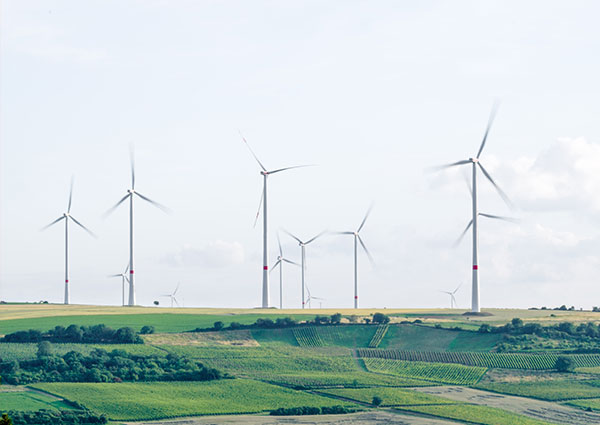The internet of energy worksheet
- 11-14s
- Energy
In this pair of lessons, students learn about the internet of energy and embark on a creative writing exerise
By 2051, the way we manage our electricity will be radically different. Students learn about the internet of energy, energy generation and demand. They then then write a letter to their family from 2051, telling them about a typical day in this futuristic world – and the role played by electricity. A two part lesson plan with a student worksheet.
Download the student worksheet in the related resources section below the curriculum links.
Download (213 kb)
Reading
Pupils should be taught to:
· understand increasingly challenging texts through:
o learning new vocabulary, relating it explicitly to known vocabulary and understanding it with the help of context and dictionaries
o making inferences and referring to evidence in the text
o knowing the purpose, audience for and context of the writing and drawing on this knowledge to support comprehension
o checking their understanding to make sure that what they have read makes sense.
Writing
Pupils should be taught to:
Physics
Energy
Calculation of fuel uses and costs in the domestic context
Listening and talking
Enjoyment and choice
I can regularly select subject, purpose, format and resources to create texts of my choice, and am developing my own style.
LIT 3-01a /
Reading
Tools for reading
I can select and use the strategies and resources I find most useful before I read, and as I read, to monitor and check my understanding.
LIT 3-13a
Finding and using information
I can make notes and organise them to develop my thinking, help retain and recall information, explore issues and create new texts, using my own words as appropriate.
LIT 3-15a
Writing
Enjoyment and choice
I enjoy creating texts of my choice and I am developing my own style. I can regularly select subject, purpose, format and resources to suit the needs of my audience.
LIT 3-20a
Tools for writing
Throughout the writing process, I can review and edit my writing to ensure that it meets its purpose and communicates meaning at first reading.
LIT 3-23a
I can consider the impact that layout and presentation will have on my reader, selecting and using a variety of features appropriate to purpose and audience.
LIT 3-24a
Organising and using information
By considering the type of text I am creating, I can independently select ideas and relevant information for different purposes, and organise essential information or ideas and any supporting detail in a logical order. I can use suitable vocabulary to communicate effectively with my audience.
LIT 3-26a
Creating texts
I can engage and/or influence readers through my use of language, style and tone as appropriate to genre.
ENG 3-27a
I can convey information, describe events, explain processes or concepts, and combine ideas in different ways.
LIT 3-28a
I can persuade, argue, evaluate, explore issues or express an opinion using a clear line of thought, relevant supporting detail and/or evidence.
LIT 3-29a
I can recreate a convincing impression of a personal experience for my reader, sharing my feelings and reactions to the changing circumstances with some attempt at reflection.
ENG 3-30a
Planet Earth
Energy sources and sustainability
Learners explore types, sources and uses of energy and develop their understanding of how energy is transferred and conserved. They consider the relevance of these concepts to everyday life. They explore the nature and sustainability of energy sources and discuss benefits and assess possible risks to form an informed view of responsible energy use.
Topical science
By considering current issues of science, learners increasingly develop their understanding of scientific concepts and their capacity to form informed social, moral and ethical views. They reflect upon and critically evaluate media portrayal of scientific findings.
Technologies
Technological developments in society and business
I understand how scientific and technological developments have contributed to changes in everyday products.
TCH 3-05a
I can identify the costs and benefits of using technologies to reduce the impact of our activities on the environment and business.
TCH 3-07a
Oracy
Developing and presenting information and ideas
Reading
Locating, selecting and using information
Responding to what has been read
Writing
Organising ideas and information
Writing accurately
Pupils develop their geographical skills, knowledge and understanding through learning about places, environments and issues at a range of scales in selected locations within Wales, the European Union and the wider world.
Pupils should be given opportunities to:
Personal and Social Education
Sustainable development and global citizenship
Learners should be given opportunities to:
and to understand:
How things work
Pupils should use and develop their skills, knowledge and understanding by investigating the science involved in a range of contemporary devices/machines and evaluate different energy resources and possibilities.
They should be given opportunities to study:
Explore how we can exercise environmental stewardship and help promote a better quality of life for present and future generations, both locally and globally
Research scientific information from a range of sources
Learn about:
Forces and energy
· Using electricity
Investigate specific measures to improve and protect the environment, for example, efficient use of resources